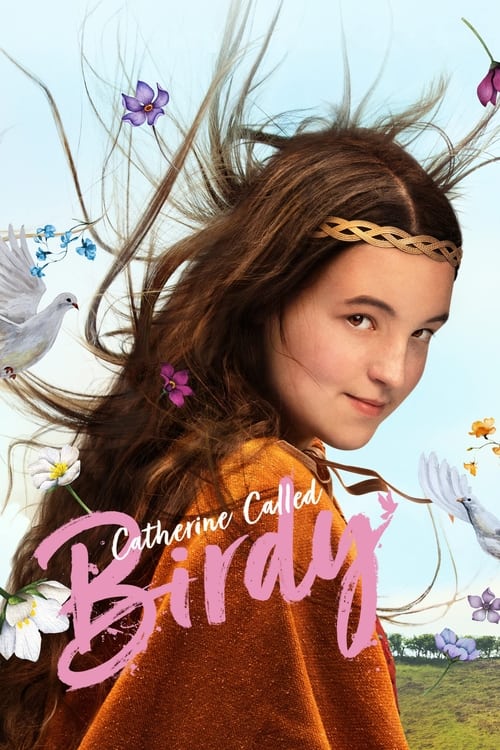Catherine Called Birdy – Film Review
Published December 15, 2023

Lena Dunham‘s cinematic adaptation of Karen Cushman’s beloved novel, Catherine Called Birdy, catapults audiences into the vivid, whimsical world of 13th-century England. Bella Ramsey delivers a captivating performance as the spirited and rebellious Catherine, affectionately known as Birdy, navigating the tempestuous waters of adolescence in a time of societal constraints and familial expectations. Accompanied by a stellar cast including Billie Piper, Andrew Scott, and Joe Alwyn, the film weaves a tale that balances comedic charm with poignant reflections on love, family, and freedom.
Set against the backdrop of Lincolnshire’s medieval landscape, the film captures the essence of Birdy’s unconventional coming-of-age journey. The narrative revolves around Birdy’s resistance to conforming to societal norms, particularly concerning arranged marriages, as her family grapples with financial troubles and matrimonial pursuits. Dunham adeptly portrays the clash between Birdy’s youthful exuberance and the oppressive expectations imposed upon her as a young woman of that era.
Ramsey shines in her portrayal of Birdy, infusing the character with a headstrong determination and an irrepressible spirit that resonates throughout the film. Her chemistry with the supporting cast, especially with Lesley Sharp’s nurturing Morwenna and Joe Alwyn’s enigmatic Uncle George, lends depth to Birdy’s relationships, making them the emotional anchor of the story.
The film’s comedic elements are both endearing and eccentric, showcasing Birdy’s outlandish attempts to deter potential suitors. Her escapades, accompanied by her loyal companion Perkin, played with earnestness by an adept supporting cast, provide moments of levity amidst the weightier themes of love and familial duty.
However, amidst its comedic charm and compelling performances, the film occasionally falters in pacing, with certain scenes feeling rushed or lacking in depth. The narrative’s transition from Birdy’s youthful rebellion to her eventual reconciliatory acceptance of familial responsibilities feels slightly abrupt, leaving some emotional arcs underexplored.
Furthermore, while the film captures the essence of Birdy’s defiance against societal conventions, it occasionally glosses over the complexities of the era’s gender dynamics. A deeper exploration of the limitations imposed on women during that period could have added richer layers to Birdy’s struggle for autonomy.
Despite these minor shortcomings, Lena Dunham’s direction breathes life into the medieval setting, offering a visually enchanting experience. The film’s costume design and picturesque landscapes immerse viewers in the vibrant tapestry of medieval England, enhancing the storytelling with its authentic aesthetic.
Catherine Called Birdy stands as a delightful cinematic adaptation that celebrates the resilience of the human spirit and the pursuit of individuality within the confines of tradition. Bella Ramsey’s captivating performance, coupled with the film’s whimsical charm and heartfelt moments, makes it a worthwhile journey into the turbulent yet endearing world of a young medieval Englishwoman.
For enthusiasts of historical dramas blended with coming-of-age tales, Lena Dunham’s rendition of Catherine Called Birdy offers a delightful and heartwarming cinematic experience, despite occasional narrative pacing issues and a need for deeper exploration of its societal themes.
